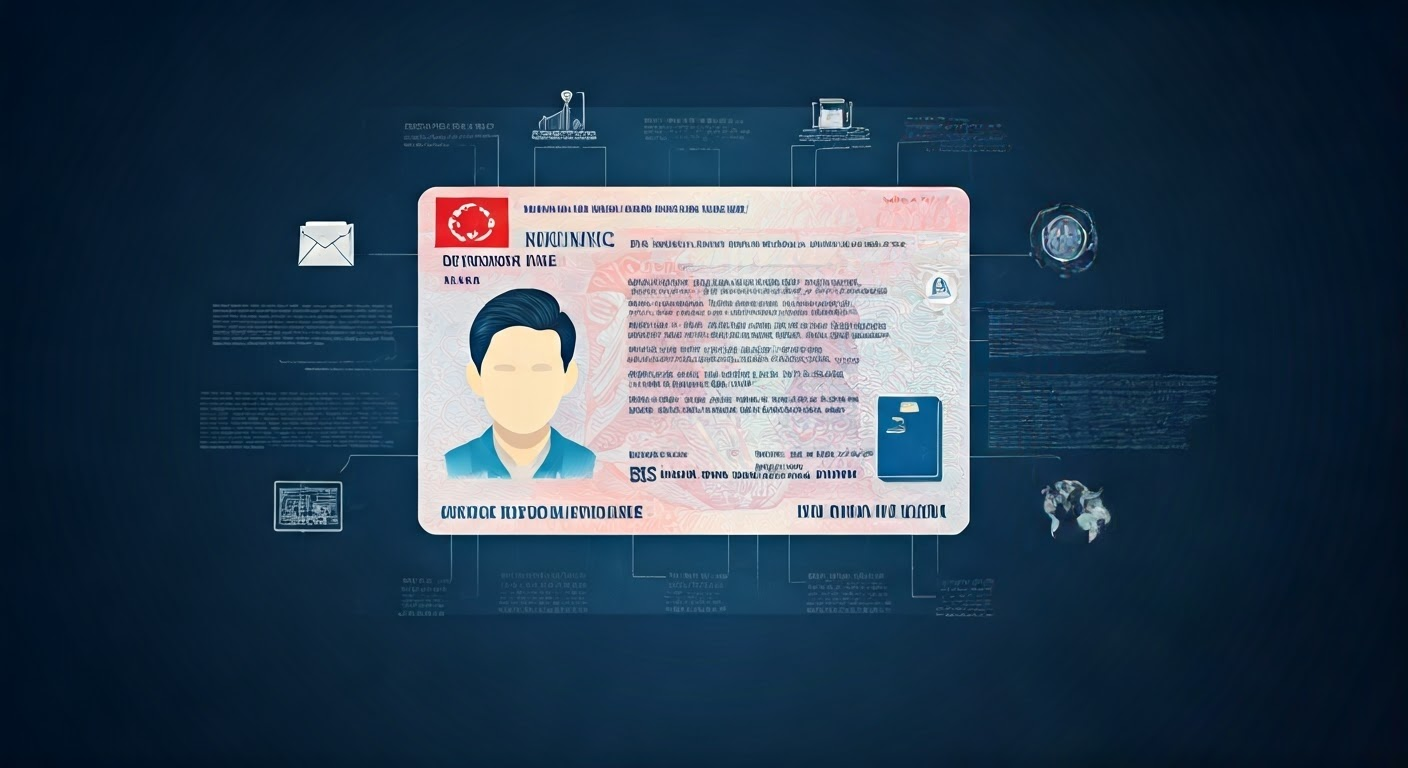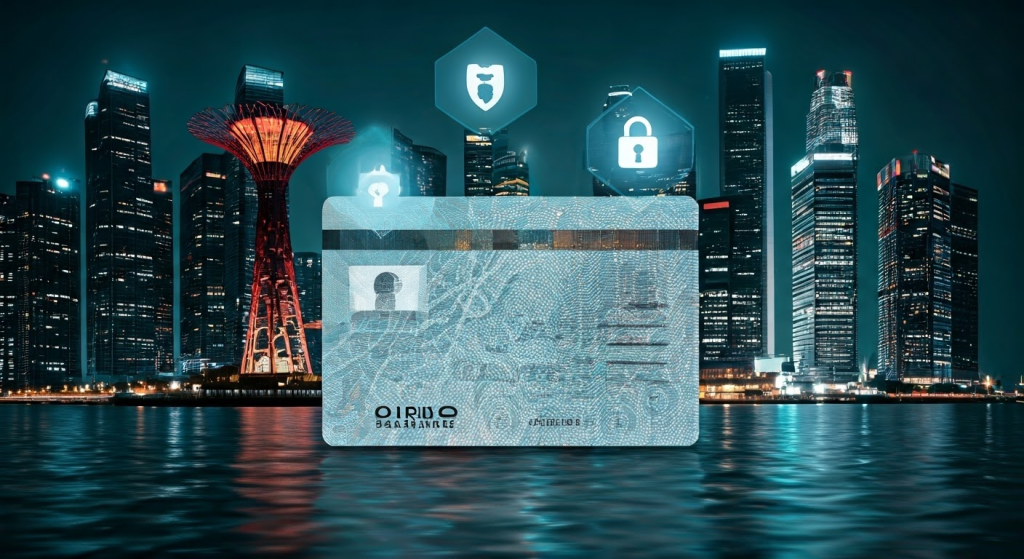
Key Highlights
- The Singapore National Registration Identity Card (NRIC) is a crucial form of identification, but its misuse poses significant risks.
- While there’s no inherent sensitivity in the NRIC number itself, its use for authentication or access control is highly discouraged.
- Unauthorized collection and careless online sharing of NRIC details can lead to identity theft and fraud.
- The Personal Data Protection Act (PDPA) outlines specific situations where NRIC collection is permissible, such as for medical services or financial transactions.
- Public education is key to shifting perspectives on NRIC use and promoting responsible handling of this vital information.
Other Tool : NRIC Generator | NRIC Validator | Bulk NRIC Generator | Bulk NRIC Validator | NRIC Barcode Generator
Introduction
This blog post wants to highlight why it’s important to protect personal data, especially the Singapore NRIC number. We will look at the laws that guide its use and share useful tips to keep such information and this important ID safe. By knowing the risks of misuse and practicing good habits, both people and organizations can help create a safer environment for everyone.
Understanding the Singapore NRIC: A Primer
The Singapore NRIC is an identity card for all citizens and permanent residents. It is an important proof of identity for many tasks. These tasks include opening bank accounts and getting government services. Every NRIC has a unique number that stays with the person for life.
Besides basic information like name and photo, the individual’s NRIC number gives access to a lot of personal data. If it is misused, there can be serious consequences. This shows why it is important to handle it responsibly and know the laws around its use.
The Purpose and Importance of NRIC in Singapore
The Singapore government created the National Registration Identity Card (NRIC) system to manage its population better. It gives citizens and residents a safe and trusted way to identify themselves when interacting with government agencies. This card is important in many everyday activities. It makes things easier and helps deliver services quickly.
For citizens, the NRIC is needed for some rights, like voting in elections. It means more than just being an ID; it shows a person’s official link to the nation.
In short, the NRIC system is a key part of life in Singapore. It helps the government do its work. It also makes it easier for people, businesses, and public agencies to interact.
Legal Framework Governing NRIC Usage
The collection, use, and sharing of NRIC numbers are closely controlled by the Personal Data Protection Act (PDPA), including the rules regarding the disclosure of the NRIC. This law requires organizations to get clear and informed consent before they collect NRIC details. This lets people control their personal information. The PDPA also has rules on data security. Organizations must take steps to keep the personal data they hold safe.
Besides this, advisory guidelines from groups like the Corporate Regulatory Authority (CRA) give clear direction on how to use NRIC numbers in business, especially in light of recent concerns regarding the unmasking of NRIC numbers. These guidelines stress the importance of collecting only what is needed and being open with people about why their NRIC information is required.
Understanding the Risks of Exposed NRIC Numbers
Sharing your NRIC number can put you at high risk for identity theft. Criminals can use it to open bank accounts, get loans, or do other bad things in your name. Dealing with these issues can take a lot of time, cost you money, and cause a lot of stress.
Also, if your NRIC number is easy to find online or offline, your personal data is at risk. It can be used for phishing scams and other harmful activities. It’s important to realize that even simple actions, like sharing your NRIC number for reasons that aren’t necessary, can give you a false sense of security and lead to big problems.
Common Misuses of NRIC Numbers
Misuse of NRIC numbers still happens, even with rules in place. Some businesses collect this information without needing to, often because they don’t know about data protection laws.
People can make things worse too. They may share their NRIC details on social media or unsafe websites without knowing the risks. This lack of awareness gives criminals a chance to misuse the data. It shows that we need better public education about these issues.
Unwarranted Collection by Businesses
Many businesses still ask for NRIC numbers as a routine, even if it is not needed by law or for the deal. The Personal Data Protection Commission (PDPC) keeps saying that businesses should only collect NRIC information when it is completely necessary and when they have a real reason to need it. Any changes to data collection guidelines will be introduced only after industry and public consultation, the PDPC stated. Collecting and saving sensitive information like NRIC numbers without a good purpose raises the chance of data breaches and may put people at risk.
Here are some situations where businesses should not ask for NRIC numbers:
- Loyalty programs that can use membership IDs instead.
- Event registrations that only need names and contact information.
- Feedback forms that do not need personal details.
By using other ways to verify and following data protection rules, businesses can help create a safer space for their customers.
The Risks of Over-Sharing NRIC Details Online
With social media and online platforms growing, many want to share their personal milestones. But sharing your NRIC number or parts of it online can lead to big problems. Identity thieves can gather your information based on details like your full name, birth date, and address, especially when they have your full NRIC number.
Avoid posting pictures of your NRIC or any documents with this sensitive information on social media. Think carefully before you upload anything that might accidentally show your NRIC details. Be careful when taking online quizzes or surveys that ask for your NRIC number, even if they seem safe. Always put your data security first and look for safer ways to verify your identity when you can.
Official Guidelines for NRIC Handling
The Singapore government has shared clear rules about how to manage and protect NRIC information, including other identification numbers. These rules stress that NRIC numbers should be kept secret and only used for ID purposes when it’s really needed. It’s very important to minimize data use, so organizations should look for other ways to verify information if they can.
These official guidelines give both public and private sector groups a way to handle NRIC data properly. They highlight the shared responsibility to protect this important information.
When Is It Legal to Collect or Retain NRIC?
The main idea is to collect and keep NRIC information as little as possible. However, there are special cases where using NRIC is allowed under the Employment Act and the Personal Data Protection Act (PDPA). These exceptions are for situations where strict identity checks are needed for legal reasons, safety, or the public good.
For instance, healthcare providers can collect NRIC information to correctly identify patients and access their medical records, ensuring compliance with verifying an individual’s identity. In the same way, banks may need NRIC verification for transactions to avoid fraud and follow anti-money laundering rules. It’s important to understand that even in these allowed cases, organizations must manage NRIC data carefully.
Alternatives to NRIC Collection for Verification Purposes
The growing awareness of data privacy has made people look for new ways to verify identity. This has led to using options other than NRIC numbers for authentication.
Organizations can use several methods, including:
- Masked NRIC numbers: This shows only part of the NRIC. It is enough for basic checks without sharing the full number.
- Mobile app verification: These apps help verify identities. They use two-factor authentication to improve security.
- Biometric authentication: This includes fingerprint and facial recognition. It offers strong and secure ways to identify someone.
These digital solutions help keep information safe and respect privacy. They lower the risks that come with using physical NRICs or storing complete NRIC numbers.
Conclusion
In conclusion, it is very important to understand how to use and protect your Singapore NRIC, as making copies of the NRIC can lead to misuse. Doing this helps keep your identity and privacy safe. Be aware of the risks that come with misuse, like businesses collecting your information without permission and sharing too much online. You can take steps to reduce these risks. Learn the official rules for handling the NRIC to stay compliant. Look for other ways to verify your identity when you can. Remember, your NRIC holds sensitive information. Treat it with caution to stop unauthorized access and protect your personal data. Stay informed and alert to avoid misuse.
Frequently Asked Questions
Is it mandatory for customers to provide NRIC for every transaction?
You do not have to show your NRIC for every transaction. The Personal Data Protection Act (PDPA) and advisory guidelines limit when NRICs can be collected. This is only necessary for specific situations that the law mentions or when it is needed for real business reasons. These rules apply to both public and private sector groups.
What steps can individuals take if they feel their NRIC information is mishandled?
Individuals can file a complaint with the Personal Data Protection Commission (PDPC) as part of their public education efforts. This is for anyone who thinks their NRIC information has been improperly handled. The PDPC will look into these cases and take action against organizations that do not meet their data protection obligations.
What are some common misuses of the Singapore NRIC?
Common mistakes with the NRIC include collecting it without proper reasons, using it for unimportant tasks, and sharing it online without care. This behavior can put people at risk for identity theft and other bad purposes. It also has serious legal consequences.
How can individuals protect their Singapore NRIC from misuse?
Protect your NRIC by knowing when you need to share it. Only give it out when it is necessary to avoid its misuse for nefarious purposes. Avoid sharing it online without a good reason. If you think someone has misused it, report it. Public education is important for teaching people about information security. It helps everyone learn how to protect themselves better.


